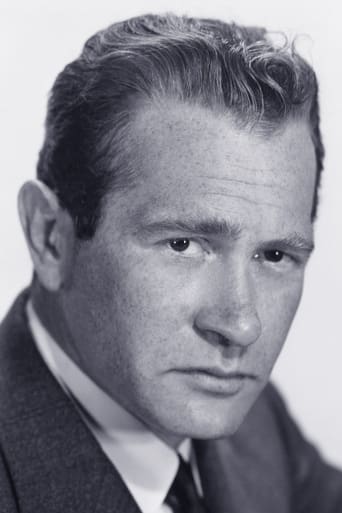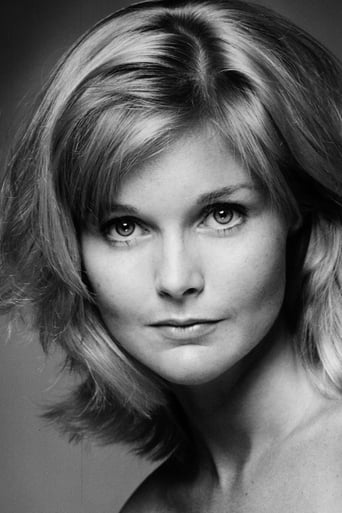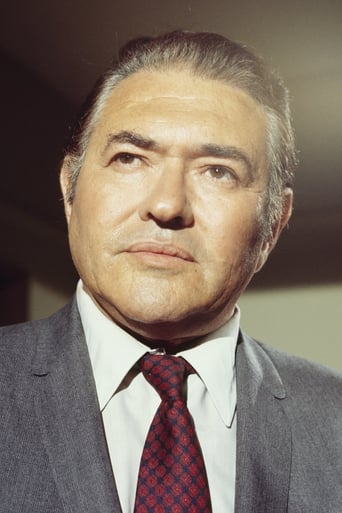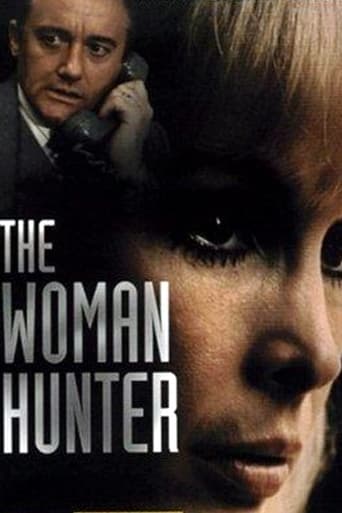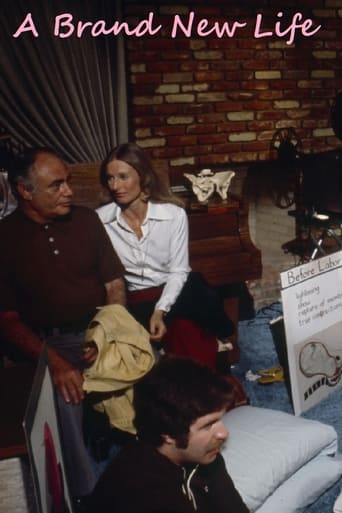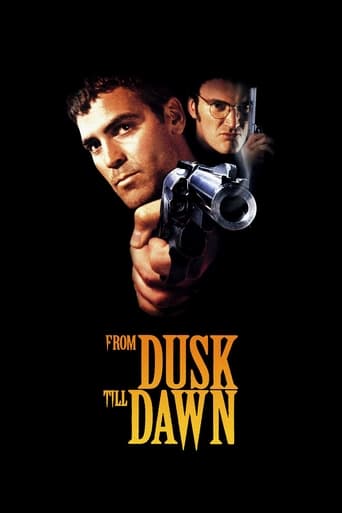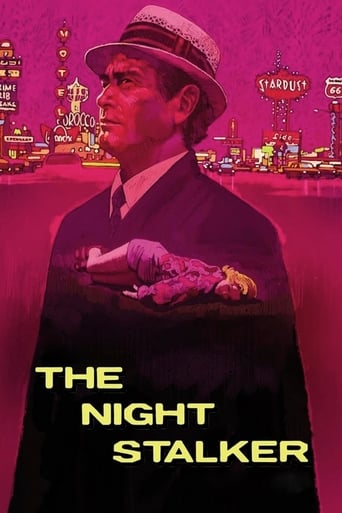
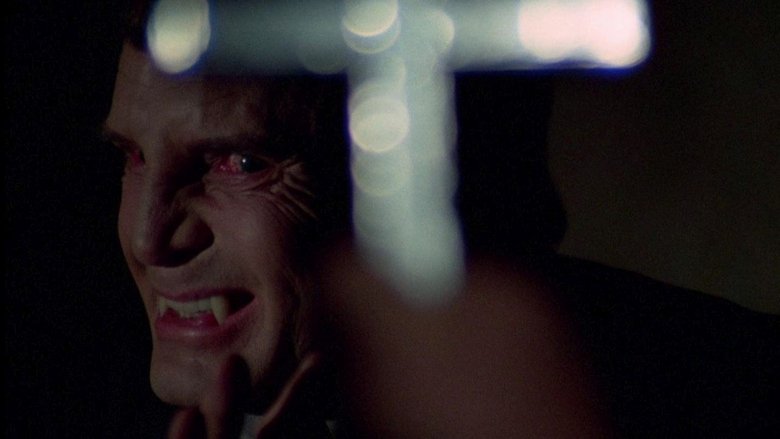
The Night Stalker (1972)
Wisecracking reporter Carl Kolchak investigates a string of gruesome murders in Las Vegas. It seems that each victim has been bitten in the neck and drained of all their blood. Kolchak is sure that it is a vampire. He's hot on the trail, but nobody believes him. His editor thinks he's nuts and the police think he's a hindrance in the investigation, so Kolchak takes matters into his own hand.
Watch Trailer
Cast
Similar titles
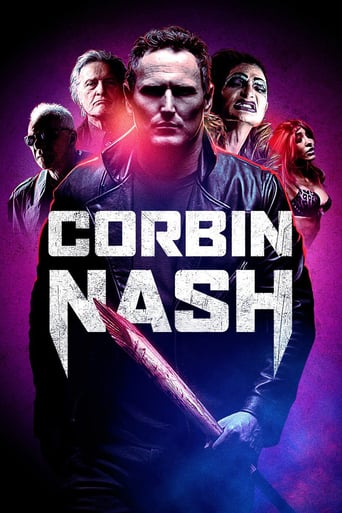
Reviews
Very well executed
Touches You
A Masterpiece!
The acting is good, and the firecracker script has some excellent ideas.
THE NIGHT STALKER is a fantastic made-for-TV horror movie. It has so much going for it, including its star, Darren McGavin as the grumpy, permanently-rumpled reporter, Carl Kolchak. Investigating a series of impossible murders, where the victims are completely drained of blood, Kolchak seems like the last person on Earth to be useful in such a case. The police agree. Yet, his old-school doggedness is the heart and soul of the story. Then, there's the killer, played quite convincingly by Barry Atwater. His dark presence was the most realistic portrayal of eeevil on network television at that time, or since! This is a Dan Curtis production, so its high quality should be no surprise. Curtis was unquestionably the king of 1970's horror TV! This could be his greatest contribution, as it was not only a solid, believable vampire tale, but also a huge hit, changing the way TV movies would be made. Scary, suspenseful, funny, and innovative, it holds up well all these years later. Co-stars Simon Oakland as Kolchak's explosive, "heart-attack-or-stroke-waiting-to-happen" boss, Vincenzo, and Claude Akins as the no nonsense Sheriff Butcher. Watch for Larry Linville as -what else?- a doctor, Elisha Cook Jr. as a contact, and lovely Carol Lynley as Kolchak's girlfriend, Gail Foster. Perfection...
"The Night Stalker" is perhaps not the greatest made-for-TV movie that the wonderful '70s decade brought forward – or at least not according to yours truly – but it's definitely one of the most popular, influential and legendary TV-movies in history! On the 11th of January 1972, when the movie first got aired, it immediately became the most watched TV-movie and even by today's standards, when the horror genre is all about digital computer effects and teenage starlets, "The Night Stalker" still has a huge cult following. You might even state that without "The Night Stalker" (and the subsequent TV-series entitled "Kolchak"), there never would have been other tremendously successful like for example "The X-Files". That's a lot of honor and credit, but it's true and definitely not exaggerated. The film also unites the finest and most prominent names of the contemporary horror/thriller industry. We have the immeasurably talented writer Richard Matheson ("I Am Legend" and other classics ) delivering a solid screenplay, based on a novel by Jeffrey Rice, genre specialist Dan Curtis ("Dark Shadows", "Trilogy of Terror") as a producer and the skillful John Llewellyn Moxey ("Where have all the People Gone?", "Horror Hotel") in the director's seat. But naturally the one and only true star of "The Night Stalker" is the lead character Carl Kolchak and the fantastic actor Darren McGavin who single-handedly turned him into simultaneously the most sympathetic and most irritating protagonist that ever appeared on the TV-screen. Carl Kolchak is an unorthodox but very persistent journalist in Las Vegas. When the dead bodies of several young women are found in the streets, without a single drop of blood left in them, Kolchak gets mixed up in the police investigation and quickly comes up with more clues and evidence than the regular coppers. They just want to keep the murders out of the papers, but all that Kolchak wants to do is spreading the word that a vampire is loose in Las Vegas. He obsessively wants to solve the murder series, so that his career gets a boost and he can return to New York, but his intense private research doesn't get much appreciation from the local police authorities or his editor Tony Vincenzo. The very best thing about Matheson's script is that "The Night Stalker" is as much a horror film as it is a detective story. The vampire elements aren't subordinate to Kolchak's investigations, or vice versa, and on top of that the film also contains a lot of subtle and effective black humor. The sequences with the fearsome vampire are atmospheric, and even though it's a TV-movie without any blood or cruelty, "The Night Stalker" is often far more unsettling and creepy than most other contemporary horror movies. There are two climaxes, in fact, and they are both very fascinating. Admittedly the pacing occasionally feels somewhat slow and the action sequences are undeniably tame, but this doesn't prevent "The Night Stalker" from being one of the genre highlights of the seventies. Darrin McGavin made Carl Kolchak immortal, but here he also receive stupendous support from a handful of great and shamefully underrated actors, like Claude Akins (as the loathsome Sheriff), Simon Oakland, Ralph Meeker, Charles McGraw and – last but not least - Barry Atwater as one of the spookiest vampires ever depicted.
Taut little TV-scale shocker hits all the right notes as it tells the story of intrepid reporter Carl Kolchak (McGavin) chasing the story of a modern-day vampire (Atwater) whose lust for blood is resulting in several young women dying horrible deaths, and the local police precinct clueless to the culprit or motive. Predictably, when Kolchak attempts to convince the authorities to suspend disbelief ditch the revolvers and arm themselves with crucifixes, he's branded a crackpot and threatened with gaol.McGavin is superb as the irritatingly tenacious media man with the straw hat and loud jackets, whose female acquaintance - Carol Lynley - becomes unwittingly pawned in his ensuing battle with the establishment. Kent Smith plays the DA with appropriate pomp and ambivalence, Claude Akins is the disbelieving police chief whose had a gut full of Kolchak's apparent disrespect, Simon Oakland Kolchak's long-suffering editor, and Ralph Meeker has his close friend and contact, perhaps the only other person who can be convinced that Barry Atwater is a blood-sucking vampire. There's small roles for Larry Linville (pre-Frank Burns), Stanley Adams and Elisha Cook, Jnr rounding out an impressive cast.As a TV movie it's quite compact (75 minutes), so my only gripe is that there wasn't more to enjoy. Fortunately it spawned a short-lived TV series ("Kolchak") and a sequel of sorts ("The Night Strangler") and it's a series worth catching if you have the opportunity. As another reviewer has already telegraphed, there's not a lot of gore to be found here, but the violence remains quite strong by seventies TV standards.
It's hard to imagine now, but by the early 1970s the vampire was, cinematically speaking, something of a dead issue. (Rimshot.) True, the UK's Hammer Studios were still plugging along with their Dracula Variations, starring Christopher Lee and a parade of bosoms in period costume, to increasingly musty effect. Attempts to modernize the concept, as in Dracula AD 1972, did not exactly catch fire.New motifs dominated the scene. Hitchcock's Psycho kickstarted the enormously profitable psychopath industry, Romero's irony-laced Night of the Living Dead established a taste for gore with social awareness. Polanski's Rosemary's Baby made even the presence of the Devil as imminent as a neighbor ringing the bell. The crux was immediacy -- vampires wore capes and came from the Old World. They were just so 19th century. Who would be scared?Curiously enough Richard Matheson, one of the industry's most prolific pros, had both reinvented and doomed the vampire as a credible agent of horror in 1954, by writing the novel I Am Legend. An tale of a lone human in a world taken over by vampires, it changed the field by making vampirism a scientific phenomenon instead of a supernatural one, and directly paved the way for Romero's visceral apocalypse. When the novel was filmed as The Omega Man in 1971, that hokey v-word had been taken out entirely; they weren't Nosferatu, just mutants.So it makes poetic sense that Matheson should help rescue the genre by scripting one of its modern classics: The Night Stalker. Adapted from an unpublished story by Jeff Rice, this whipsmart TV movie recharged the batteries by keeping it real.In a modern (1970s modern, that is) and believably seedy Las Vegas, a series of odd murders begins. The police call it the work of a serial killer. But as the anomalies pile up, our protagonist, a down-on-his-luck reporter named Carl Kolchak, forms a different opinion. "I hate to say it," he informs the chagrined authorities (and he doesn't hate to say it either; he's sitting on the scoop of the century and he's grinning like a Cheshire Cat) "But it looks like we've got a real, live vampire on our hands."Kolchak, as played by the wonderful Darren McGavin, is a masterstroke of characterization. With his cheap suit and outsize ego he's a walking irritant, and his exchanges with the police and his weary editor Anthony Vincenzo (Simon Oakland) are rich with comic detail. (The sheriff informs Carl that he is present by "the mutual suffrage of us all." "Sufferance," corrects Kolchak.) He makes the perfect hero here by having almost nothing of the heroic about him, except a certain hard-headedness that serves for courage. He *knows* he's right, and he might just get himself killed to prove it.Terrifically entertaining, The Night Stalker became the highest-rated TV movie of its time, spawning a sequel and a short-lived but quite fun series with a disproportionately large footprint. The X-Files, Buffy the Vampire Slayer, Supernatural, Fringe-- all these shows can count themselves as Kolchak's progeny.For better or worse (generally for worse, although see Let the Right One In) vampires now crowd the screens again, and through inflation are once again a devalued commodity. In movies like Blade or From Dusk till Dawn or 30 Days of Night they appear in hordes. But as The Night Stalker reminds us, one vampire ought to be enough for anybody.
